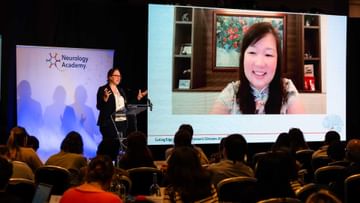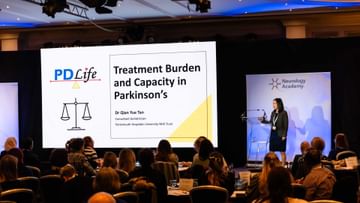The challenges of becoming a new PI?: case study
KnowledgeFor a number of years we have received feedback at the Parkinson’s Academy about including sessions about research. Taking these responses and working with The Cure Parkinson’s Trust(CPT) and NIHR leads Dr Camille Carroll, Professor Oliver Bandmann and the Academy’s Dr Peter Fletcher, we designed the Research Engagement meeting for professionals who are becoming or aspire to become involved with Parkinson’s research on many different levels. Each week we are posting a blog to look at the meeting’s speaker sessions in more detail.
Dr Emily Henderson, University of Bristol and Royal United Hospitals Bath NHS Foundation Trust
‘At the end of the talk I want to advertise to you that wherever you are, there is lots of opportunities to take part in research.’
She very simply explained that the first step to becoming a PI was to contact the R&D department to discover what’s on the portfolio. If there is a project of interest, it is easy to complete an expression of interest form, and then you are on your way. However, obviously it is not all as simple as that!
‘Say “yes” to everything, until you become overburdened and can’t take any more.’
Dr Henderson is currently the Chief Investigator of CHIEF-PD, investigating Rivastigmine in the prevention of falls in Parkinson’s. She explained her own career journey, running an earlier clinical trial of Rivastigmine as her PhD, which provided the foundation for the current trial.
She went on to explain that having a clear research question was only one aspect of the study: securing funding, drug and placebo supply, drug expiry, labelling, shipping, contracting and liaising with the MHRA were also steep learning curves. She also set herself the challenge of recruiting 130 patients in 6 months, which involved screening nearly 1,000 people. Each patient then underwent rigorous 4 hour assessments to explore gait irregularity.
‘Patients find it enormously valuable to take part in trials.’
The first study produced a fascinating finding of a 45% reduction in falls, even though the study population did not report any improvement in symptoms. This was published in Lancet Neurology in January 2016.
Listen to this presentation:
Related articles
'The things you can't get from the books'
Parkinson's Academy, our original and longest running Academy, houses 20 years of inspirational projects, resources, and evidence for improving outcomes for people with Parkinson's. Led by co-founder and educational director Dr Peter Fletcher, the Academy has a truly collegiate feel and prides itself on delivering 'the things you can't get from books' - a practical learning model which inspires all Neurology Academy courses.


